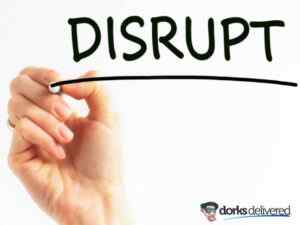In today’s increasingly digital world, it’s hard to overstate the importance of digital platforms. These online tools and services have transformed the way we live, work, and interact with one another. From social media networks to e-commerce marketplaces, digital platforms have become the backbone of modern life, enabling us to connect, communicate, and transact with people and businesses all around the world. Josh was joined by Jay Pandya from MVP1 Ventures to discuss all things about digital platforms and how they can help your business.
Jay blends significant experience with digital transformation, complex program management with high level of ethical practices. He has a fiery passion for the transformational shift that digital technologies are bringing to our lives and deeply cares about the impact our actions have on the quality of life for everyone on the planet.
Turn Your IT Into a Utility!
How to Scale Your Business and Your Offerings
Platforms

Having a platform is like hosting a party and inviting your friends and family over to your place to have a good time. You provide the space, food and drinks, and music. Lots of people come and join the party—the platform—and they participate and interact with each other. If you have few participants, such as only two people, that is not a party.
Jay adds that those interactions create value. When those interactions are valuable to participants, you have a good platform.
However, there’s always a limit: the number of people you can invite into your home, how much noise you can make and how much food can be served, how many cuisines can be there, etc. There’s a physical limit in the physical world. There’s no such limit in the digital world that’s why it’s exciting and sexy from a business perspective.
Retailers
There are retailers who consider themselves as business owners. However, when you think about the people who go to Garden City, who do they have a relationship with? They don’t say they will go to a particular shop in Westfield. They say: I’m going to Garden City.
Garden City has been there for a long time. The retailers come and go.
So if I had to choose what my business would be—a retailer in Garden City or owning the shopping centre—I would choose the latter.
Jay explains, “As the owner of the shopping centre, you have incredible amount of power. You get to make the rules of the game: the tenancy agreement, the starting time, the end time, and own the relationship with the customer. If you don’t own the relationship with the customer, you’re not really in charge of your business.”
Westfield is a platform. Retailers are the players within that platform.
Reduce your recurring expenses! Ask us about the Dollar IT Club.
How To Get a Higher Business Valuation (10x–100x)

- They have an idea.
- They design a product or service around that idea.
- They manufacture a product or design the service proposition.
- They distribute the products or deliver the service. or deliver the product through distribution.
Companies like Facebook, Xero, Google, and Canva are different. They have higher valuations compared to a businesses with a traditional business model.
A product-based business has three to five times of its revenue profits. A platform business will have 10x to 100x valuations.
Facebook acquired WhatsApp for $19 billion. WhatsApp’s actual operating revenue at the time of acquisition was $1.2 billion. Likewise, YouTube was making no less than $200,000 when it was bought by Google for $1.5 billion.
These companies are valued like this in terms of valuation multiples because of an underlying business model. The platform business model is driving those valuations.
The Platform Business Model
Jay says, “It’s not for all businesses to go and build their own platform, but what business owners need to be aware of is platform revolution and platform-driven disruption are happening. There’s only 1% or 2% penetration globally in the industry, so 98% of the opportunity is still on the table. So, people need to start thinking whether they can transition their business to a platform business model and apply the common principles of a digital platform business to their current business.”
Jay adds, “Google Maps is my favourite product. It’s made driving so much easier. I don’t have to think where I’m going and how I can get there. I just put the destination and follow the instruction. I remember driving before Google Maps. I had to literally park my car on the side of the road and see where I’m going. Google Maps has made the experience of driving and going to a new place so much easier. But it could not have happened unless we had fast Internet and GPS. It’s a convergence of multiple technologies that created this innovative product for Google Maps.”
[embedyt] https://www.youtube.com/watch?v=9RYmIUeCF1M[/embedyt]
Jay explains, “realestate.com.au is an Australian example of platform companies. Aria Group has a revenue of just under a billion dollars the last time I looked but market cap of $56 billion. That’s a multiple of 56. Go and get a small-medium business, an electrician, or a shop owner’s annual revenue. If they made $100,000 last year, no one will give $5.6 million for their business.”
So the opportunity is to learn platform business model, see and think about and explore how it can be applied. Determine the players who might be actually playing that platform game, and then really make a choice. Do you want to be the leader and actually play a platform game? Do you want to be a willing participant or be a victim?
Those who are not aware of the game will be wiped out. It’s already happening in every industry.
For example, taxi drivers complain about the crazy cost of taxi licence. But taxis got disrupted because of Uber. It’s a good platform, but it’s just a simple app that connects drivers and passengers. But Uber doesn’t make profits even now. It’s losing money but they are reinvesting their technology so investors keep pulling money in. Why? What do they know that the average small-medium business owner doesn’t?
That’s what Jay wanted to bring to Australia: an opportunity for mom-and-dad businesses to make a choice.
Turn IT into a utility! Talk to us how we can help you reduce your IT spend and boost efficiency at the same time.
Disrupting Your Industry

Jay adds that it’s not for everyone because not everyone has that kind of will, great capital and resilience to play that game. It’s not for people who cannot even keep their head above water. Those who are well positioned, futuristic, and understand the disruption that tech is driving can be the leaders and disruptors in their own industry. They should adopt platform as a business model, as their future business model.
Jay says, “If you are solving problems for your business, might as well solve it for the industry. Now your competitors will love you because you solve the problem for them, and you actually made a difference in the industry.”
You can use digital technologies and platform principles to be the leader and actually create and be the forefront of disrupting your own industry and shaping the future of the industry. What might have started as a problem in your business may actually become a leadership opportunity in your industry.
Become the Leader in the Platform Economy, Shape the Future of Your Industry. Talk to Jay!
Jay Pandya
Recommended Book: Zero to One
Zero to One by Blake Masters and Peter Thiel is my favourite. It talks about innovation and going from zero to one kind of value. That journey of innovation from nothing to something is fascinating. I love it. Changed my life, changed my perspective.
Business Freedom
“For me, business freedom is just really being able to choose where do I want to play, how much do I want to play and how long do I want to play. That’s business freedom to me. When my business supports me playing, not working, that’s business freedom. I love to play like how kids play in school: one moment they’re playing cricket or football and they’re playing something else the next. It’s that freedom to play.”
– Jay Pandya, CEO of MVP1 Ventures





























